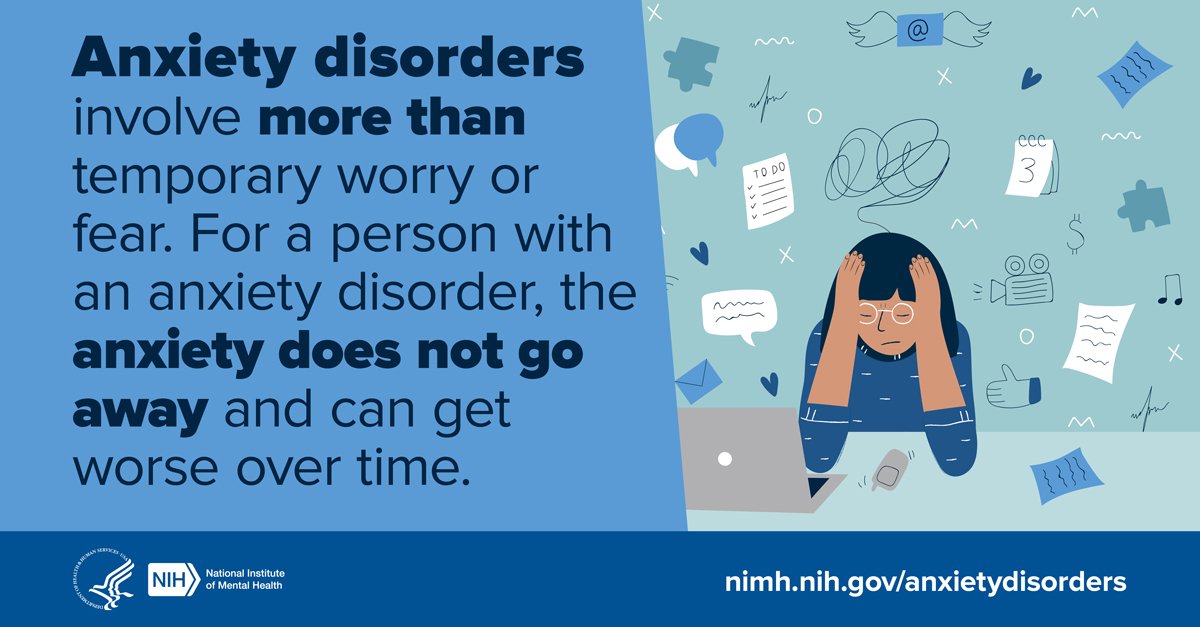The Relationship Between Depression and Anxiety
- Moe | Scarlet Plus

- Oct 16, 2025
- 6 min read

Many people notice that sadness and worry often arrive at the same time. The relationship between Depression and anxiety is close and complicated. Understanding how they connect can help you name what you feel and choose the next step toward relief. Researchers at the National Institute of Mental Health explain that both conditions affect thoughts feelings and daily life. They also note that many people live with both at once.
What depression means in plain language
Depression is more than a few hard days. It changes mood energy sleep and focus. It can make once loved activities feel flat. Work school and family life can feel heavy. NIMH describes depression as an illness that affects how you feel think and handle daily activities and that many factors can raise risk including genetics biology life stress and the mind body link.
Common signs include a low or empty mood most of the day loss of interest in activities sleep changes eating changes trouble with focus low energy guilt or low self worth and thoughts of death or suicide. If you notice several of these most days for two weeks or more you may be facing a major depressive episode. NIMH statistics pages and brochures explain this pattern and encourage people to seek care.
What anxiety means in plain language
Anxiety becomes a disorder when worry and fear do not go away get stronger over time and interfere with daily life. Anxiety can show up as restlessness a racing mind irritability muscle tension poor sleep and fatigue. There are several types such as generalized anxiety disorder panic disorder social anxiety and phobias. NIMH offers clear definitions and notes that about a third of people in the United States will experience an anxiety disorder at some point in life.
How depression and anxiety connect
These conditions share several roots. Research highlights shared genetic risk as well as brain and stress system pathways that play a role in both. Family history is one of the strongest risk factors for either condition. That helps explain why the two often co exist in the same person.(PMC)
Life events can link them as well. Long periods of stress or loss can trigger constant worry. That worry makes sleep and focus worse and mood can drop. On the other hand a long bout of low mood can spark worry about work school or relationships. This feedback loop can keep both going.
NIMH also points to overlap across symptoms and across time. The same person may notice waves of worry and sadness across months or years. Understanding this helps with planning care that treats both together.
How this combo can feel day to day
You may wake up already tense and tired. You might dread the day ahead and also feel numb. Your thoughts may race with what if questions. At the same time nothing sounds enjoyable. Small tasks feel big. You might cancel plans because of fear or because you feel flat. Many people notice body symptoms too such as headaches stomach upset a tight chest or a pounding heart. The CDC and NIMH list these patterns among common features of depression and anxiety and stress how much they can disrupt life if not treated.
Why getting one clear plan matters
When depression and anxiety show up together the plan needs to cover both. Studies supported by NIMH have found that high anxiety can blunt the benefit of antidepressant medicine for some people. That is one reason a personalized plan that blends therapy skill practice and the right medicines is so important.
Evidence based treatments that help both
Cognitive behavioral therapy
Cognitive behavioral therapy teaches you to notice unhelpful thoughts and actions then practice more helpful ones. It is one of the most studied therapies for both depression and anxiety. The NIMH treatment pages describe psychotherapy as a first line option for both conditions. At Adelson Behavioral and Mental Health our team offers cognitive behavioral therapy right here in the Dallas Fort Worth area and by telehealth across Texas.
Medication options
Medicines can lift mood quiet worry and help the brain reset. The most common options for both conditions include selective serotonin reuptake inhibitors and serotonin norepinephrine reuptake inhibitors. A careful trial often takes several weeks. Your clinician will adjust dose and track changes over time. NIMH explains that finding the right treatment can take patience and that combining therapy and medicine is often the best path.
Skills that support treatment
Simple daily practices help your brain relearn calm and joy. Regular sleep and wake times steady meals brief outdoor walks planned social time and short breathing or grounding exercises can all help. These are not cures on their own. They are fuel for therapy and medicine to work better. The CDC and NIMH note that healthy routines and steady care improve outcomes and lower the burden on daily life.
How to tell if it might be both
Look for these patterns
You feel down most days and you also worry most days.
You avoid plans due to fear and you also lose interest in former joys.
You find it hard to sleep due to racing thoughts and you also wake unrefreshed.
You notice body tension and aches and also feel slowed down and tired.
You struggle to focus due to both worry and low mood.
If several lines ring true it is worth an evaluation for both conditions.
What to expect at Adelson Behavioral and Mental Health
You deserve a plan that fits your life. At your first visit we listen to your story and goals and complete a full assessment. Together we build a simple plan that may include therapy skills medicine or both. We track your progress in regular follow ups and adjust the plan so you keep moving forward. Our clinic serves Arlington Dallas Fort Worth and Mansfield with in person and telehealth visits. You can start with our Depression and Mood page or our Anxiety and Panic page then book online when ready.
When to seek urgent help
If you have thoughts of harming yourself or others or feel you cannot stay safe please get immediate help. In the United States you can call or text 988 to reach the Suicide and Crisis Lifeline. Support is free and available all day every day. In any life threatening emergency call 911. These are the official resources recommended by NIMH and SAMHSA.
Steps you can take this week
Track your symptoms once a day. Note mood worry sleep energy and stress. Bring this to your first visit.
Choose one tiny action for joy. Ten minutes of music a short walk time with a pet or a short call with a friend.
Practice box breathing. Inhale for four counts hold for four exhale for four hold for four. Repeat for two minutes.
Set gentle expectations. Aim for good enough work and rest rather than perfect outcomes.
Tell one trusted person what you are working on so you feel less alone.
How loved ones can help
Listen with curiosity. Resist the urge to fix.
Offer small concrete help such as a ride to an appointment or a grocery list.
Invite connection and accept no for now if they are not up for it. Keep the door open.
Celebrate effort. Notice any step forward no matter how small.
Your next step in Arlington Dallas Fort Worth or Mansfield
Care works best when you feel seen and supported. If parts of this page sounded like your life reach out today. Our team at Adelson Behavioral and Mental Health offers psychiatric evaluations therapy and medication management for both depression and anxiety. You can read more about cognitive behavioral therapy and book a first visit online. Local care plus telehealth means help can fit your schedule.
Helpful resources we referenced
National Institute of Mental Health overview on depression and treatment options.
National Institute of Mental Health overview on anxiety disorders and how they overlap with depression.
NIMH statistics on major depressive episodes.
Centers for Disease Control and Prevention FastStats on depression and health care use.
SAMHSA page about the 988 Suicide and Crisis Lifeline.





